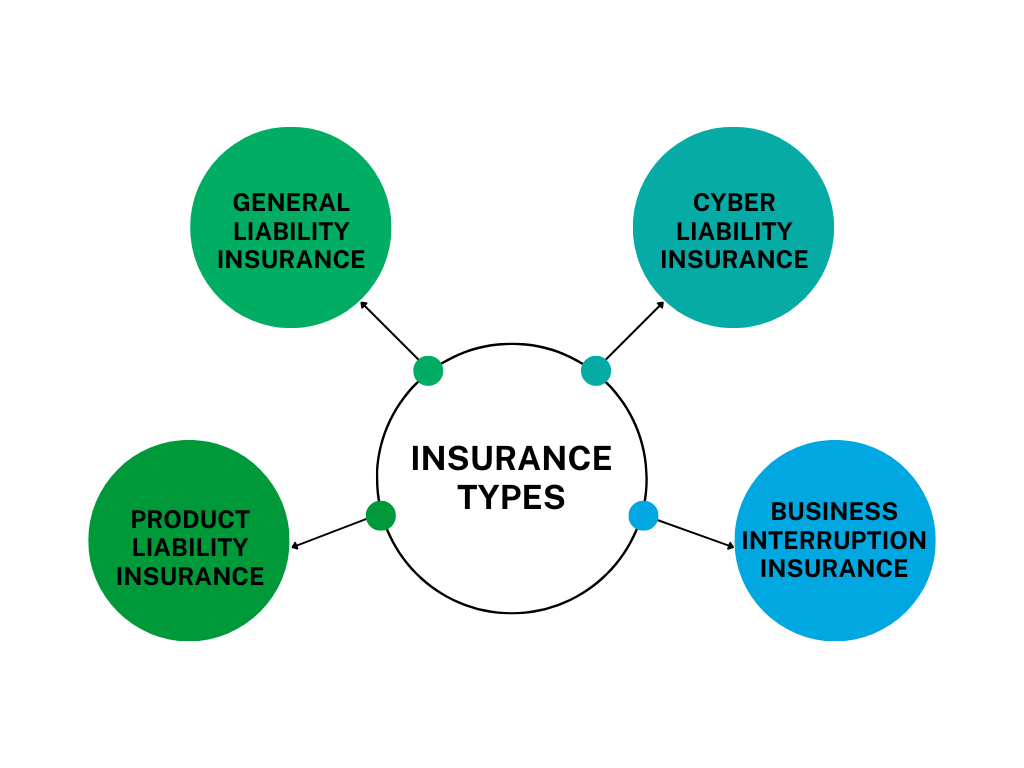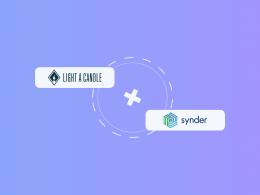In the rapidly growing world of e-commerce, where online businesses are flourishing, it is crucial to recognize the significance of protecting your venture against potential risks and uncertainties. Ecommerce business insurance plays a vital role in safeguarding your inventory, digital enterprise, providing financial protection, and mitigating the risks associated with operating an online business.
This article has been prepared for informational purposes only. Seek professional advice to choose the right insurance coverage tailored to your unique business needs.
Understanding e-commerce business insurance
E-commerce business insurance encompasses various coverage options tailored specifically for online businesses and their products. It is essential to familiarize yourself with these coverage types to ensure comprehensive protection:

Insurance type #1. General liability insurance for businesses
E-commerce businesses face unique risks due to their digital nature, but general liability insurance remains essential. Even without a physical store, your business may still interact with customers, suppliers, or contractors, and accidents or incidents can occur. General liability insurance offers financial protection and helps preserve your business’s reputation.
General liability insurance is a fundamental component of e-commerce business insurance. It provides crucial coverage against a wide range of risks and liabilities that can arise during the course of your business operations.
General liability insurance: key aspects
- Coverage scope – general liability insurance offering protection against third-party claims for bodily injury, property damage, and advertising injury. It safeguards your business from legal and financial consequences resulting from accidents, incidents, or alleged negligence.
- Bodily injury – if someone sustains bodily harm while visiting your business premises or as a result of your products or services, general liability insurance can cover medical expenses, legal fees, and potential settlements or judgments. For example, if a customer slips and falls in your warehouse or store, this coverage can help with medical expenses or potential lawsuits.
- Property damage – this coverage applies when your business causes damage to someone else’s property. For instance, if your delivery driver accidentally damages a customer’s property during a delivery, general liability insurance can help cover the costs of repair or replacement.
- Advertising injury – this general liability can protect your business against claims related to defamation, slander, copyright infringement, or false advertising. If a competitor alleges that your advertising campaigns misled customers or caused harm to their business reputation, this coverage can help cover legal expenses and potential damages.
- Legal defense – this general liability provides coverage for legal defense costs, including attorney fees, court costs, and settlements or judgments. Even if a claim against your business is groundless or frivolous, the insurance can help cover the costs of defending your business in court.
Note: While general liability insurance protects companies and provides broad coverage, it typically has certain exclusions. It’s essential to review your policy carefully to understand the specific circumstances or types of claims that may not be covered. Common exclusions may include intentional acts, professional errors, and certain types of property damage.
Remember that general liability insurance policies have coverage limits, which represent the maximum amount the insurance company will pay for a covered claim. Deductibles are the amount you must pay out of pocket before the insurance coverage kicks in. It’s crucial to select coverage limits and deductibles that align with your business’s specific needs.
Insurance type #2. Cyber liability insurance for e-commerce companies
With the increasing threat of data breaches and cyberattacks, cyber liability insurance is crucial for e-commerce businesses. It covers the financial losses associated with cyber incidents, including data breaches, hacking, ransomware attacks, and identity theft. Additionally, it provides coverage for legal expenses if a customer or third party takes legal action against your business due to a cyber incident.
Insurance type #3. Product liability insurance for e-commerce business
For e-commerce businesses selling physical products, product liability insurance is essential. For example, if you sell on Amazon, it provides coverage against claims arising from defective products, injuries caused by product use, or inadequate product warnings. This type of coverage protects your business from financial losses resulting from legal claims and can cover legal defense costs and settlements.
Insurance type #4. Business interruption insurance for e-commerce business
Unforeseen events, such as natural disasters or equipment failures, can disrupt your e-commerce operations or have an impact on your inventory. Business interruption insurance provides financial support by covering lost revenue, ongoing expenses, and the costs of temporarily relocating or restoring operations. It helps your business recover and resume operations as quickly as possible, minimizing the financial impact of a disruption.
Find out What is a 1099 nec with Synder!
Benefits of e-commerce business insurance
Investing in e-commerce business insurance offers numerous benefits, including:
Business financial protection
E-commerce business insurance provides a safety net against financial losses resulting from unforeseen incidents. It helps cover legal expenses, damages, and compensation claims, mitigating the financial burden on your business. Without insurance, a single significant incident can have devastating financial consequences that could potentially lead to business closure.
Legal defense and liability coverage
In the event of a lawsuit, e-commerce business insurance can cover legal defense costs and settlements. It protects your business’s reputation and assets, ensuring that you can navigate legal challenges with peace of mind. The cost of legal representation and potential settlements can be substantial, and having insurance coverage helps alleviate this financial burden. Just make sure to fill out an online certificate of liability insurance so you can supply the document when necessary.
Business continuity and recovery support
If your e-commerce business suffers a significant setback, such as a cyberattack or a catastrophic event, business interruption insurance helps you recover and resume operations quickly. It covers expenses related to temporary relocation, equipment replacement, and ongoing costs during the recovery period. This support ensures minimal disruption to your business and helps you maintain customer trust and loyalty.
Read about Temporary vs Permanent accounts and How to calculate cash flow.
Choosing the right e-commerce business insurance
When selecting e-commerce business insurance, consider the following steps:
Assessing specific risks and coverage needs
Understand the risks unique to your e-commerce business, such as data breaches, product liability, or supply chain disruptions. Evaluate your coverage requirements based on these risks. Conduct a thorough risk assessment to identify vulnerabilities and determine the types and limits of coverage you need.
Evaluating insurance providers
Research insurance providers with experience and expertise in the e-commerce industry. Look for providers who offer customization options and flexibility in policy terms. Consider their reputation, claims handling process, and customer support. It is essential to choose a provider that understands the specific risks and challenges faced by e-commerce businesses.
Comparing insurance quotes and policy terms
Obtain quotes from multiple providers and compare their premiums, deductibles, coverage limits, and exclusions. Consider additional benefits or add-on coverages that align with your specific needs. It’s crucial to review the policy terms carefully to ensure that you have adequate coverage and understand any limitations or exclusions.
Steps to protect your e-commerce business
In addition to e-commerce small business insurance, implement the following measures to enhance your business’s protection.
Risk management
Identify potential vulnerabilities in your company. Analyze past incidents or losses to understand patterns and areas that need improvement. Consider factors such as data security, supply chain risks, and product quality control.
Implement preventive measures
Strengthen your data security protocols, including encryption, firewalls, and regular vulnerability assessments. Protect customer information, payment systems, and sensitive business data from unauthorized access. Implement strict quality control processes to ensure the safety and reliability of your products.
Create a crisis management plan
If you sell online, develop an incident response plan that outlines communication strategies, backup procedures, and disaster recovery protocols. Regularly back up critical data and ensure you have the means to restore operations quickly. Establish clear communication lines and define key personnel roles and responsibilities during a crisis.
Train employees on risk awareness and mitigation
Educate your staff on cybersecurity best practices, such as recognizing phishing emails and maintaining strong passwords. Provide product safety guidelines and quality assurance training to reduce the likelihood of product liability issues. Regularly update your employees on emerging risks and preventive measures.
Conclusion
Securing your online business with e-commerce business insurance is important. The risks and uncertainties associated with online operations necessitate comprehensive protection. By understanding the various coverage options available, assessing your specific risks, and implementing preventive measures, you can safeguard your e-commerce business, ensuring its longevity and success.
Seek professional advice to choose the right insurance coverage tailored to your unique business needs. Remember, the right management and investment in insurance for e-commerce companies is essential to protecting your business’s financial health and reputation in the face of unforeseen events and challenges.






